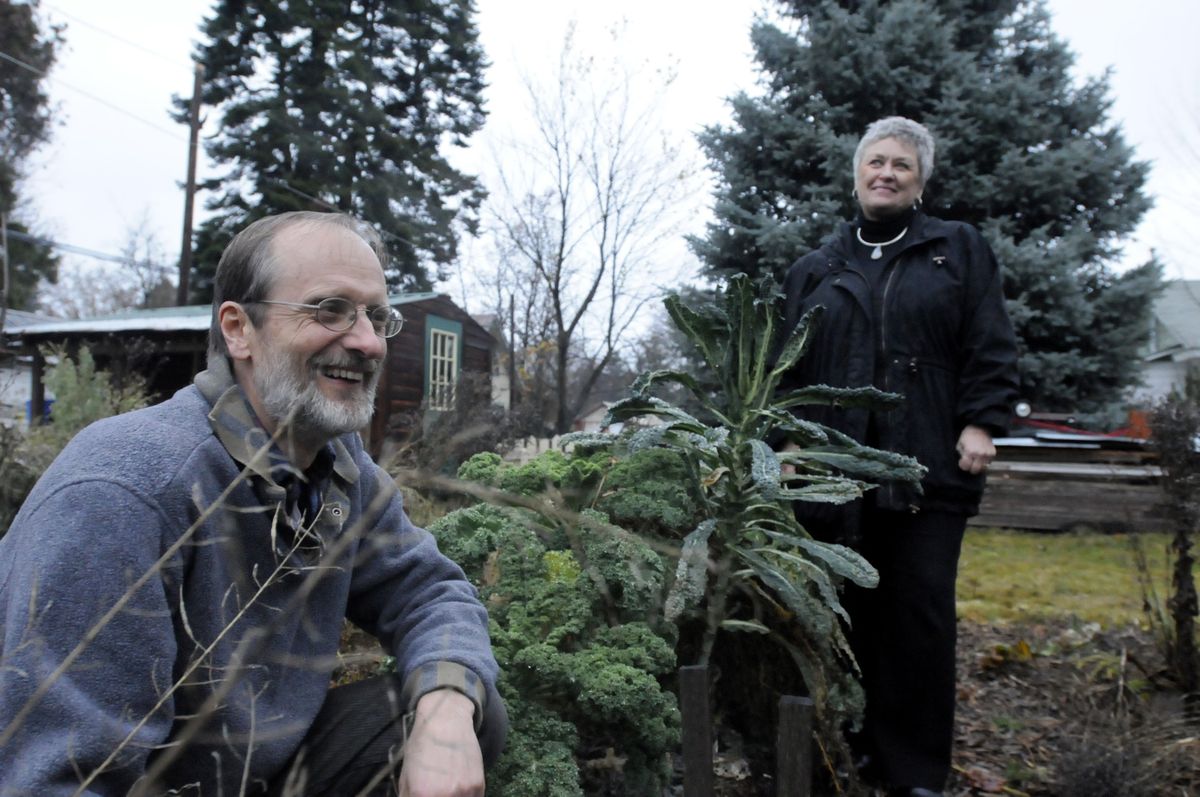Sandpoint residents step toward future
Movement invites community to be self-reliant

SANDPOINT – Richard Kuhnel’s carbon footprint is steadily shrinking.
He and his wife, Berta, work out of home offices, which means their 1992 Subaru Legacy seldom leaves the garage. Last summer, the Sandpoint couple doubled their garden space, growing vegetables without pesticides or power tools. And when they needed a storage shed, Kuhnel built it out of recycled lumber.
But as an individual, Kuhnel can only accomplish so much. That’s why he hopes to persuade the entire Sandpoint community to join his efforts.
Kuhnel is the co-founder of the Sandpoint Transition Initiative, which launches Friday with a public forum at the Panida Theatre. The Transition Town movement started in Great Britain. It challenges cities to reduce their dependence on fossil fuels with practical, local fixes.
“This U.S. lifestyle that we’ve become accustomed to uses a lot of energy, and creates a lot of waste,” said the German-born Kuhnel, a former software developer who is earning a master’s degree in ecologically sustainable design.
The transition town movement asks the questions: “How can we live well, and not disrupt and destroy the natural world?” said Kuhnel.
The movement relies on local initiative. Each town crafts solutions that work for their citizens. In Kinsale, Ireland, a coastal resort town of about 2,500 people, the City Council adopted a template that included expanding the number of community gardens, creating incentives for people to ride their bikes, cutting energy use, and reducing waste from the local tourism industry.
Ideas are already rolling in for Sandpoint. Turning biomass from nearby forests into green energy is one possibility. Kuhnel also thinks the community has the potential to produce more of its own food, despite its northern latitude and abbreviated growing season.
He’s run calculations, trying to estimate the number of acres needed to feed Sandpoint’s 8,200 residents.
“We really have all the means we need to create this place, this town, that can provide for the needs of its members,” Kuhnel said.
That doesn’t mean Sandpoint becomes a self-sufficient fortress, he added. The end goal is resilient communities, whose residents are better prepared for a future where oil and gas are more expensive and less abundant, Kuhnel said.
The Transition Town handbook uses the example of a trucking strike in the United Kingdom. “They were three days away from empty shelves in the grocery stores,” said Karen Lanphear, the other co-founder of the Sandpoint Transition Initiative.
The example got the retired college administrator thinking about where her food comes from. “In the grocery store, every single thing is transported by a truck that uses fuel,” she said. “What if something happened to our fuel supply?”
Since Lanphear attended a first briefing on the concept at Kuhnel’s house in February, she’s talked to hundreds of local residents about the movement. She said its message resonates with a diverse crowd – business owners and teachers, as well as organic gardeners and religious groups.
“It has such broad appeal because the world is hungry for solutions. We are inundated with problems,” Lanphear said. “People want to be proactive.”
Gasoline prices that spiked above $4 per gallon upped the ante for many families, she said. They’re looking for ways to cut fuel consumption and lower their bills.
Sandpoint is the second U.S. community with a transition initiative. Boulder County, in Colorado, also has one. Michael Brownlee, a founder of Boulder County’s effort, is one of the speakers at Friday’s event.
With its environmentally conscious population, and echoes of frontier self-sufficiency, Sandpoint is fertile ground for the movement, the co-founders said. Many Bonner County residents already live off the grid. They get their heat from wood stoves or sources other than a utility company, Lanphear said. Local farmers’ markets have strong customer support. And subscription agriculture, where customers sign up for regular deliveries from local farms, is catching on.
Lanphear said the initiative could provide the framework for cooperation among existing groups.
Sandpoint Mayor Gretchen Hellar will speak at Friday’s event. “I like the idea of focusing on the resources we have – buying locally and using the local skills we have,” she said.
The decision shouldn’t be fear-based, but made for better quality of life, Hellar added.
She rides her bike and walks most places – primarily because she enjoys the exercise.
And, she said, “why wouldn’t you buy local eggs instead of eggs shipped from Mexico?”